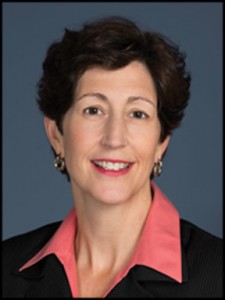
1. Your firm, Z Capital Partners, owns several well-known brands, including Mrs. Field’s Cookies, Chevy’s Restaurants and TCBY. When it comes to trying to turn companies around, does a well-known brand help or hurt the effort?
You’ve hit on a good point, which is that if you have a high-profile company and you don’t get it right, you’ve got a high profile company that didn’t get it right. On the other hand, one thing that attracts us to brand-name companies is that their brand helps make them defensible. The public already has an opinion about whether they want to buy that brand.
We’re especially attracted to fast-growing companies whose growth has significantly slowed down because their debt load has left them with no free cash flow. Because they have no cash, they can’t launch new products, open new venues or expand geographically. So, one of our goals is to buy their debt, convert it to equity, which deleverages them, and means that their free cash flow can be dedicated to growth again.
2. Most big name brands in Z Capital’s portfolio are restaurants. Does the firm have a particular affinity for brand-name restaurants?
At one time we did, because when we bought them, there were lots of restaurants that were in the marketplace and struggling. Restaurants may be having trouble because of high gas prices or a recession has occurred. When you’re doing distressed-for-control, you can’t dictate who’s going to file for bankruptcy. It could be health care during one period. It could be more restaurants. You’ve seen times when all movie theater companies were in distress, or senior housing was in distress. Airlines, too. When you do distressed-for-control, you have to ask, “What are the best opportunities right now?”
3. Does distressed-for-control investing need a long, difficult recession to find good companies to buy?
No, actually. Part of it has to do with the sad fact that lots of companies poorly capitalize themselves, even in good times. In other words, mistakes are made in the capital structure, so you always have companies filing for bankruptcy. But when you get a recession, or a prolonged downturn, there are more companies to see. And in a prolonged downturn, it’s harder to drag companies out of bankruptcy.
4. You are the head of economic research at Z Capital. What do you do?
I do two things. One is assist the investing team when they’re looking at companies that are likely to go bankrupt from the ground up. They’re down there in the weeds. My job is to be up in the treetops. If, say, a potential portfolio company is in the food business, I’ll be watching wheat prices and saying, “We’ve got this drought in the Midwest and it’s impacting corn, but we have to watch out because wheat prices may go up as well.”
My second job is helping our investors. The distressed-for-control space is not something in which people wake up and say, “Oh, I get it.” Even well-versed investors might not know the difference between a firm investing in high-yield bonds and one investing in senior bank loans. There’s an enormous difference, and even if LPs figured it out, they wouldn’t necessarily know the ramifications. So, my job is to say, “Okay, we buy senior secured bank loans, and let’s talk about what that means.”
5. You’re pretty outspoken about terms. Why isn’t there more standardization?
In private equity, the devil is in the details. So the key question is what terms will one LP accept that another one won’t, and what do the terms reveal about the GP themselves? What it says about GPs reflects, in part, their strategies and their size. Smaller funds still tend to charge more in management fees, but if you’re a gigantic fund, charging 2 percent means you can become fat and happy without executing much.
Each firm has a very specific strategy and the terms need to reflect that. ILPA has done a great job of pushing terms to the forefront of everyone’s thinking. On the other hand, ILPA has also pushed the idea that it’s all got to be standardized. For fees, that won’t happen because GPs are all remarkably different. Every GP comes to the table with a unique set of skills, and they want to be paid for those skills.
Edited for Clarity by Gregory Roth


 If you do not receive this within five minutes, please try and sign in again. If the problem persists, please
email:
If you do not receive this within five minutes, please try and sign in again. If the problem persists, please
email: